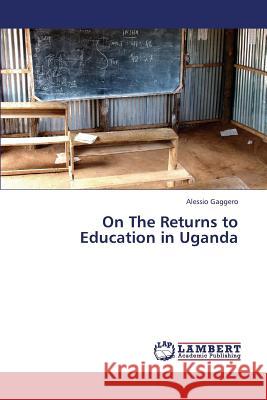On The Returns to Education in Uganda » książka
On The Returns to Education in Uganda
ISBN-13: 9783659360503 / Angielski / Miękka / 2013 / 56 str.
In this book we estimate the economic returns to education in Uganda. In order to overcome the self-selection issue we use father's education as a source of exogenous variation in completed years of schooling. Our findings suggest that the there is little (if anything) bias in the conventional OLS estimates. The estimated returns to education are 5.8\%. We then provide different specifications of the original model to measure the differential impact of schooling for different sub--groups of the population. From our analysis the following facts emerge. First, women have higher returns to education than men. Second, the returns to education are higher in the urban areas and in the public sector. Finally, older cohorts have higher returns to education.
In this book we estimate the economic returns to education in Uganda. In order to overcome the self-selection issue we use fathers education as a source of exogenous variation in completed years of schooling. Our findings suggest that the there is little (if anything) bias in the conventional OLS estimates. The estimated returns to education are 5.8%. We then provide different specifications of the original model to measure the differential impact of schooling for different sub--groups of the population. From our analysis the following facts emerge. First, women have higher returns to education than men. Second, the returns to education are higher in the urban areas and in the public sector. Finally, older cohorts have higher returns to education.











